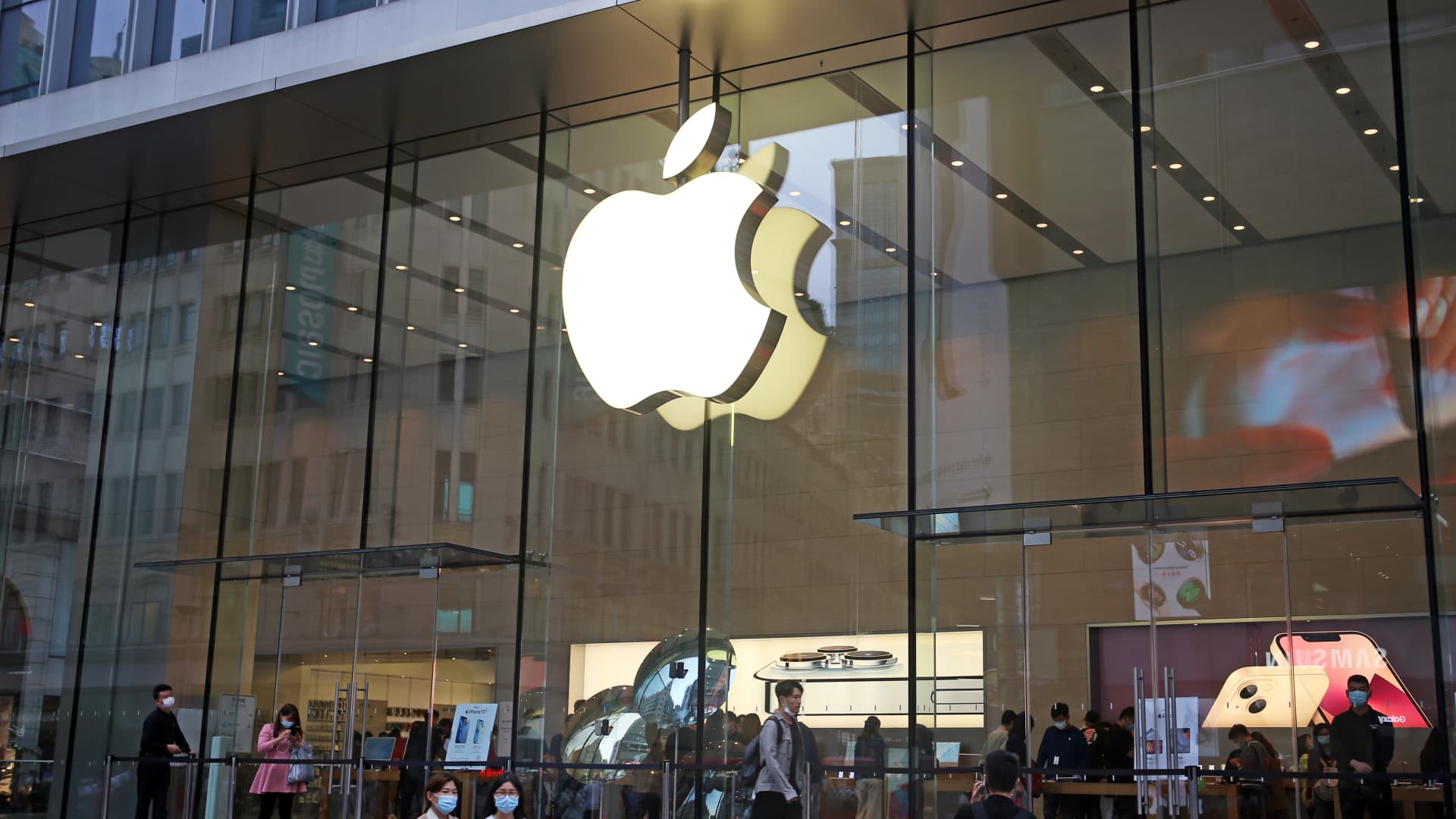Apple stock is down over 8% this week, wiping off about $200 billion in value, and dragging down the Dow and Nasdaq indexes. Apple is now officially in a bear market alongside other technology megastocks.
Apple has failed during a bad week for equity markets, which are selling off stocks in nearly every industry on fears of Fed rate hikes, weakening consumer confidence, rising inflation, and supply chain challenges around the world. The Nasdaq Composite is down over 7% so far this week and is on pace for a six-week losing streak.
Apple faces some supply chain challenges, but the outlook for its business hasn’t markedly changed this week.
The company has typically been viewed as a “safe” place for investors to park their money. The fact that it’s selling off alongside everything else is a bad sign for other stocks, and a sign of deteriorating investor confidence.
Renaissance Macro Research’s Jeff DeGraff told CNBC on Thursday that in a bear market, there’s nowhere to hide — and that includes Apple.
“For tech, when they start taking out the leadership in tech, that’s a better sign that they’re starting to take everything,” DeGraff said.
“Our assumption is that the AAPL selloff will continue, not because we know anything about this quarter’s iPhone shipments or revenue services, but because we believe that once investors start selling best-of-breed names they are rarely done in one day,” he said Datatrek co-founder Nick Colas on Thursday.
It’s a remarkable reversal from last November, when growth-heavy tech stocks began to fall and Apple often attracted investors who seek a lower-risk bet on tech.
Apple still has prodigious cash flow, which enables it to endure slowdowns and return profits to shareholders. It generated $28 billion in operating cash flow in the March quarter on total sales of $97.3 billion. It said it spent $27 billion during the quarter to repurchase its own shares and pay dividends.
Weakening consumer confidence has not started to hurt iPhone sales — in fact, in the March quarter, every single one of Apple’s businesses grew except for iPads (which Apple blamed on a chip shortage.)
When CEO Tim Cook was asked about the effects of macroeconomic conditions and inflation on his business in an earnings call last month, he said the company’s bigger problem was making enough iPhones and Macs to meet global demand — not a slowdown in demand.
“Right now, our main focus, frankly speaking, is on the supply side,” Cook said.
But even if Apple were to start to feel the effects of deteriorating macroeconomic conditions, it remains a company with a globally famous brand, premium profit margins, stores in key shopping centers, and an collection of related products and services that appeal to wealthy consumers around the world.
If growth slows, Apple will continue to generate enormous profits and sales — even if it’s no longer the most valuable company in the world.
.
